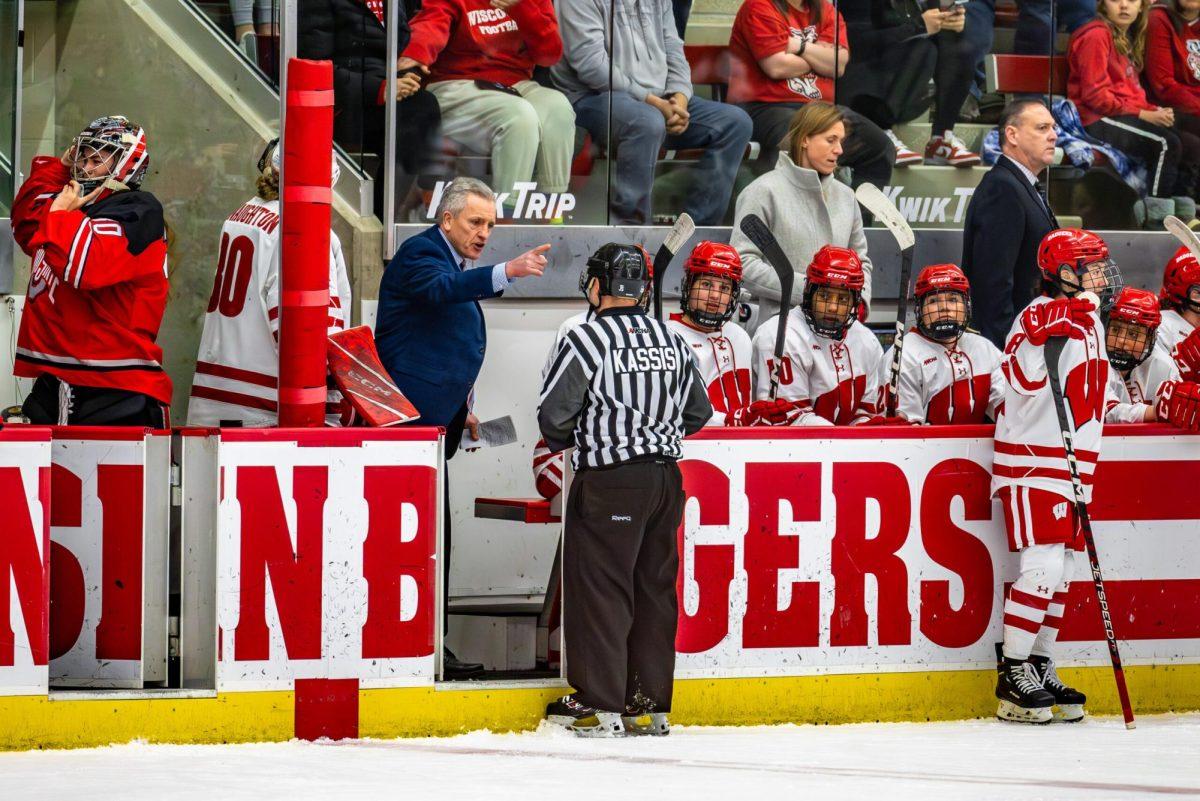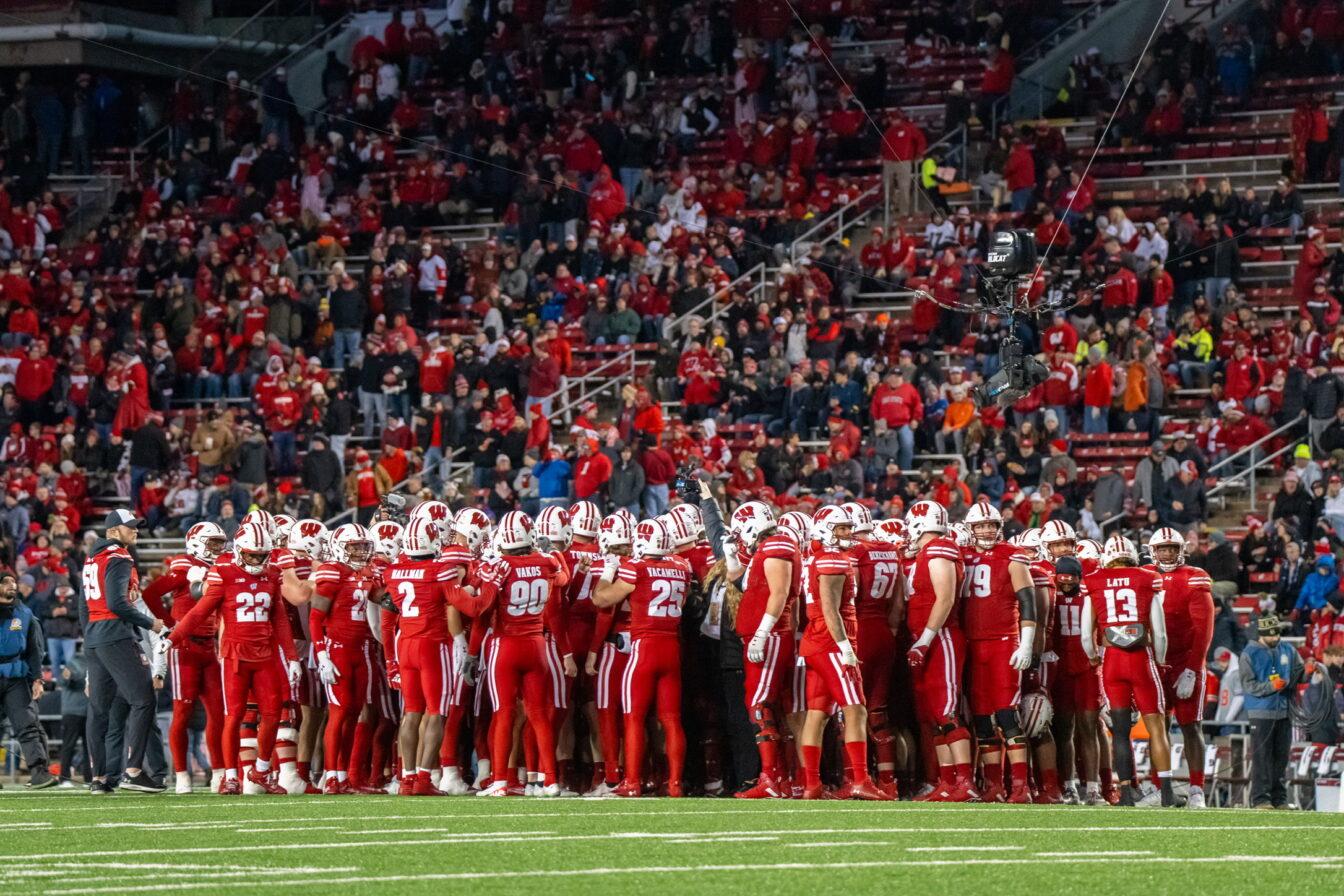JFK, Roswell, the Wisconsin Badgers. Once these three things had no connection; now they share the distinction of having a conspiracy theory surrounding all of them.
Maybe there were men on the grassy knoll; perhaps there really have been aliens on Earth and the government has covered it up inside Area 51. Maybe, just maybe, the Badgers (and more specifically, all the crazed Badger fans that invaded Las Vegas last weekend and placed wagers, large and small, on the outcome of the game), are the victims of a conspiracy.
Do I really believe this to be the case? Right up front, I’ll tell you that I do not believe that anyone or any organization took an active hand in ending the Badger game early. But that’s just my feeling. Is this a situation that merits a serious investigation? Yes, it certainly is, because there have been a few clever coincidences along with misinformation being put out in the days since the blackout.
The Las Vegas gaming rules on college football games are that the teams need to have played 55 minutes before any game that has been ended can officially count. The lights went out at Sam Boyd Stadium with 7:41 showing on the clock, which means that there was only 2:41 remaining until the game’s result would pay at the bookmakers.
Yes, that is nothing by itself, but bear with me. The score of the game was 27-7 when the lights went out, and UNLV was nowhere near covering a spread that had risen steadily in the week before the game.
Early in the week, the spread was as low as three points and only got as high as six in the hours before the game. This spread seems astoundingly low for this game. If there was one game this season that I truly believed the Badgers would not have a problem winning and running away with, it was this game.
Coaches, including Barry Alvarez, have often been heard making comments along the lines that a football team will show the most improvement between the first game and the second game. Wisconsin had already played a game and UNLV had not seen action this year. This created an incredible advantage for UW — an advantage that won’t be replicated for the rest of the season. Bookmakers aren’t dumb — they don’t set up spreads that a total fool could pick with consistent accuracy — but anyone could have seen that this spread was the best one on the board.
Why would this matter? If the line on the game was low, Wisconsin fans and regulars alike would toss major money on the Badgers, well beyond what may have been placed if the spread was more realistic. If UNLV won the game or the Badgers could not cover the spread, the casinos would make a huge winning because all the wagering was so one-sided. If the Badgers were going to beat the spread, as was probable, then they already knew that the power was going out, so there was no risk to them.
Of course this is all just hypothetical, but if there really was a conspiracy, that would have to be the logic behind it.
So how did the power actually end up going out? Initially in the press box, reporters were told that a city transformer in the area had gone out and the stadium had lost power. The outage was not a stadium problem, but it was instead a city problem.
The Sunday edition of the Las Vegas Review-Journal reported that the outage was caused by a car accident. Two car accidents did happen in the area that night, but it was quickly revealed that neither of those accidents could possibly have caused the power outage. There were conflicting reports from the Las Vegas Review-Journal, UNLV police and Metro police as to the real cause of the outage. The conflicting reports fueled speculation that foul play could have been involved.
The story from Nevada Power representative Edgar Patino was that there was an equipment failure about a mile and a half from the stadium.
Patino told CNNSI earlier this week that “the equipment failure was not caused by humans or human intervention or sabotage. It was a bad splice within a cable at the riser.”
On top of the conflict of information, the fact remains that this was the closest a game has ever come to reaching the 55-minute mark without finishing.
This is the first time a situation like this has occurred in Las Vegas. Some conspiracy theorists will tell you that is only because gambling on UNLV was formerly not allowed. In February 2001 the Nevada gaming commission lifted a decades-old ban on gambling on Nevada sports teams — another coincidental log on the fire, if you will.
The scene itself was surreal — a darkened stadium, players that could no longer be seen. As thousands of fans continued to cheer, and as the UW band played on, reveling in the opportunity to provide a nighttime concert, more than one Las Vegas odds maker had to be smiling.
A stroke of luck for the odds makers in a city where it pays to be lucky, or foul play in a city where you pay for your luck? We may never know. Yet the Nevada Gaming Control Board has promised to investigate the outage, although it is likely no consolation to those who lost money they believe they should have won.













